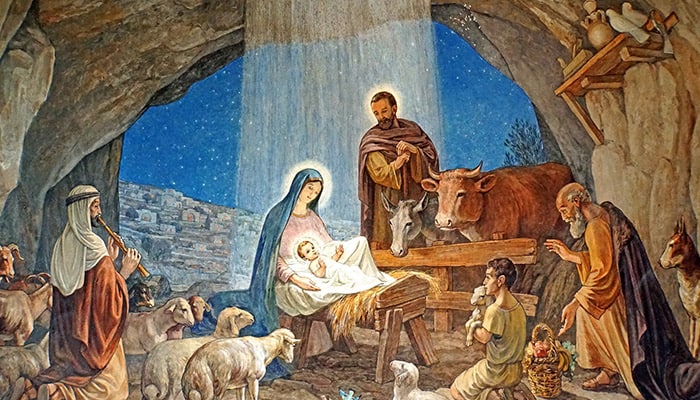Everything Started with a Birth

The word “Christmas,” indeed, has Christ in its root. It is actually a shortened form of “Christ’s mass,” which was recorded in its Old (Crīstesmæsse ) and Middle English (Cristemasse) forms during the Middle Ages.
Interestingly, the feast was sometimes called by Anglo-Saxons Nātiuiteð, which originated the modern word “Nativity” and had its roots in Latin nātīvitās (“birth”).
Like in Latin, the Armenian word for Christmas is Ծնունդ (Dzunoont), meaning “birth” (dzunoont). Etymologically, the words for both languages are related. Nātīvitās combines the word nātīvus (“native”) with the suffix – tas , and nātīvus derives from nāscor (“I am born”), which comes from an earlier form gnāscor . This original form has its roots, indeed, in the Proto-Indo-European language (the mother language for both Armenian and Latin), where we find the root *ǵenh ₁ (“to give birth”). This is a very prolific root: it originated the Greek word γεννάω (gennáō , “to beget,” from which came the English word genealogy) and several words in Latin, like genus (“offspring,” from which came the English genuine) and natio (“nation”), among others.
Also, believe it or not, the same root produced the Armenian word ծին (dzin ), from which we have the verb ծնիլ (dzunil “to give birth”) in Modern Armenian and, also, the noun dzunoont. How is that? This is because the Proto-Indo-European *ǵ becomes ծ ( dz ) in Armenian.
Incidentally, the same word dzunoont is, logically, on the basis of the first biblical book. The title of the Book of Genesis was translated into Classical Armenian as Գիրք Ծննդոց (Kirk Dzununtots ), because it gave the genealogy (ծննդաբանութիւն / dzununtapanutiun ) of mankind.
As we see, the root dzin is a prolific one. It was not unexpected that in most recent times it would become a noun: it currently designates the word gene in Armenian.
From the birth of Jesus Christ to the study of genes in the third millennium, the Armenian language finds its way to keep pace with the times.
